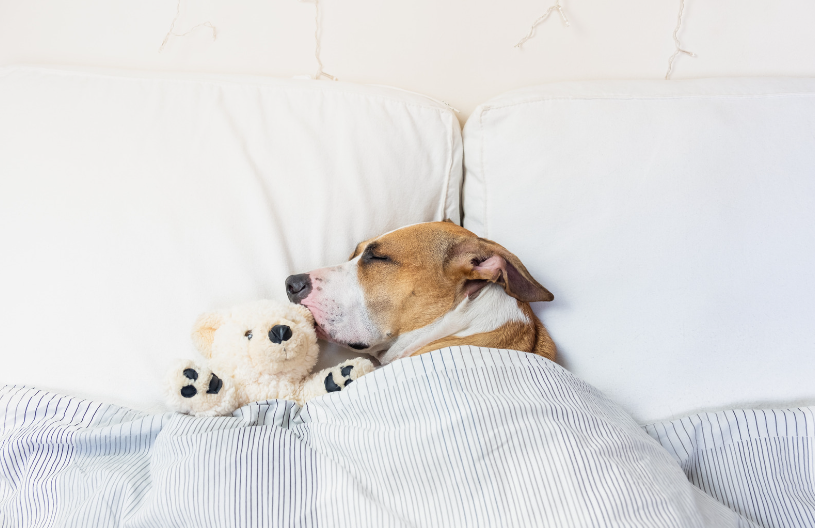Welcome to Heart to Heart with Honeydew! Today we're talking about one of my favorite topics - how sleeps affects you and your pets.
The variation in sleep durations among different species is believed to be largely influenced by their ecological niche and survival needs. For instance, animals like giraffes and elephants, which are prey to many predators, sleep less to stay alert and protect themselves. On the other hand, animals like bats and sloths, which have fewer predators or unique survival strategies, can afford to sleep for longer durations. This fascinating adaptation shows how sleep, while universally important, has evolved differently across species to suit their specific lifestyles and environments.
I find it fascinating that we all sleep differently - humans and animals alike.
But no matter who you are, sleep is important! If you're looking to enhance your own sleep routine, why not try our Honeydew Sheets ?
They're designed to provide a comfortable sleep surface for all types of sleepers, and they feel absolutely divine.
So whether you sleep like a dolphin or a koala, make the most of the time you're in bed!
Did you know that sleep habits vary widely among different species?
Some animals sleep for just a few minutes a day, while others snooze for nearly 20 hours!
Let's dive into the world of animal sleep:
The Short Sleepers
1. Giraffes: These towering creatures are known for their long necks, but they only need between 10 minutes and 2 hours of sleep per day. They often sleep standing up to stay alert for predators.
2. Elephants: These majestic animals also sleep surprisingly little, averaging just 2 hours per day. And they do this in short bursts, rather than one long sleep period.
3. Dolphins: Dolphins are fascinating sleepers. They exhibit "unihemispheric sleep," where one half of their brain sleeps while the other half remains awake. This allows them to continue surfacing for air and watching for predators even while sleeping.
The Long Sleepers
1. Koalas: At the other end of the spectrum, we have the adorable koalas, who sleep up to 22 hours a day! This is largely due to their diet of eucalyptus leaves, which are low in nutrients.
2. Brown Bats: These small creatures are the champions of sleep among mammals, snoozing for nearly 20 hours a day. They sleep during the day and hunt at night, using echolocation to find their prey.
3. Sloths: These slow-moving creatures sleep for about 10 hours a day in the wild, although in captivity, they can sleep for up to 15-20 hours a day!
Did You Know...? Here's the Question: Which animal holds hands with another while sleeping? Answer: To prevent drifting apart while they're sleeping, sea otters often hold hands. This adorable behavior is known as "rafting."








